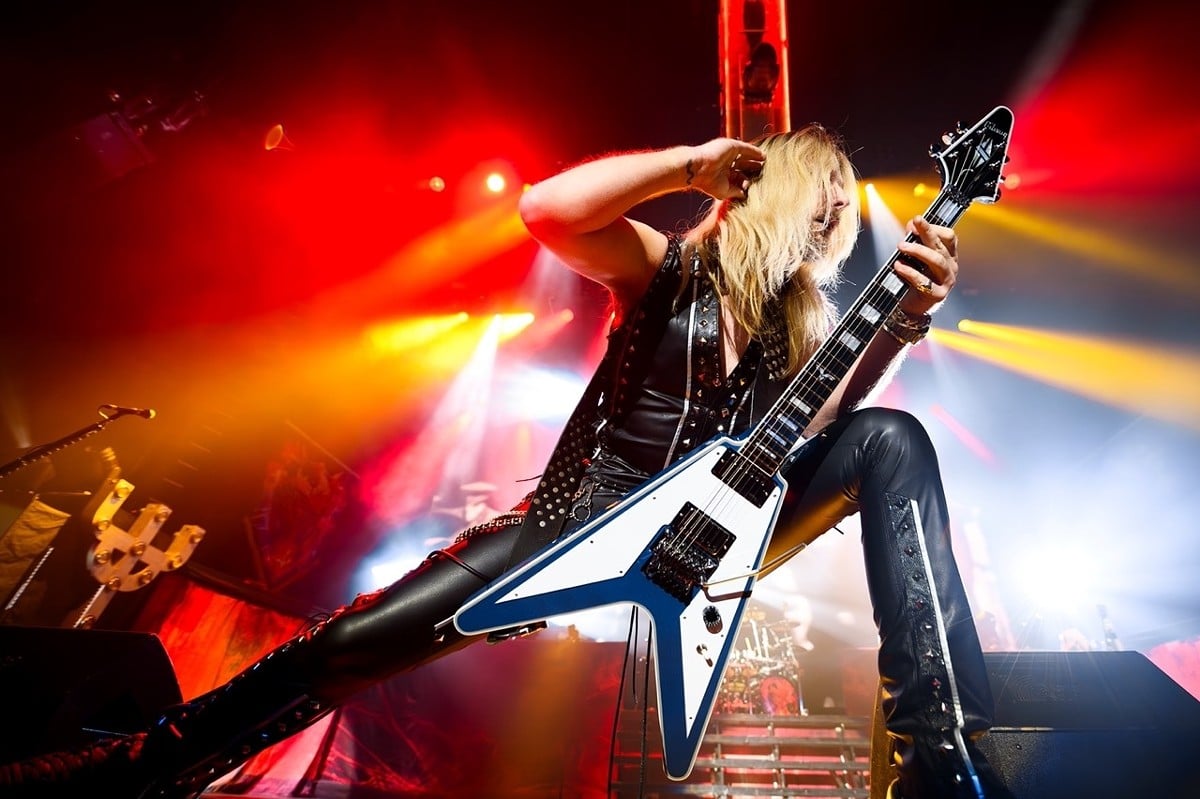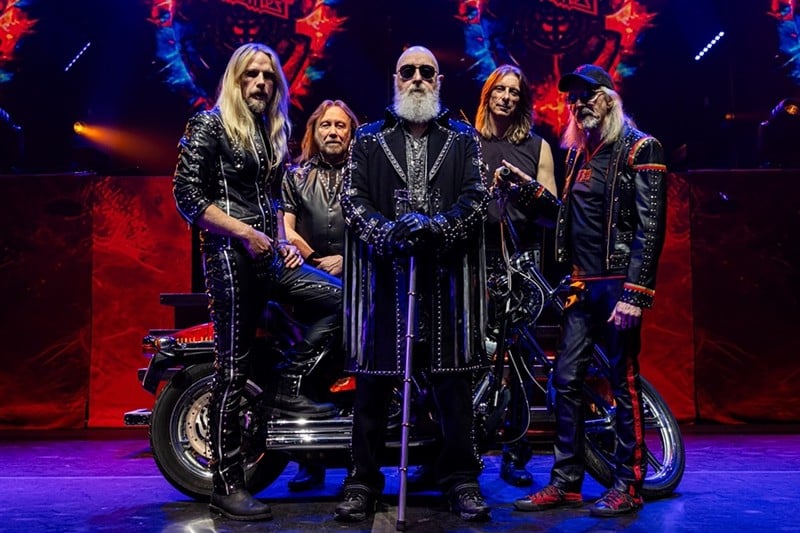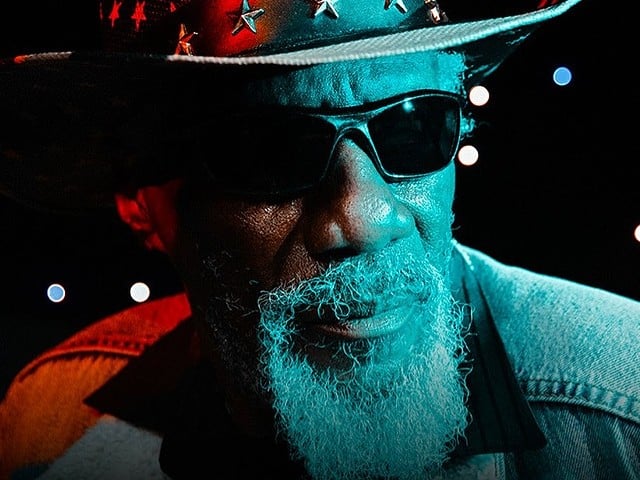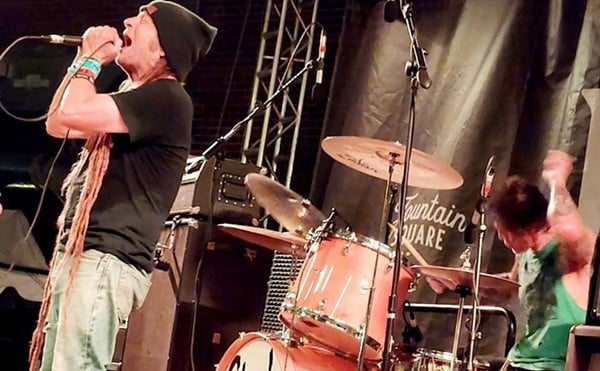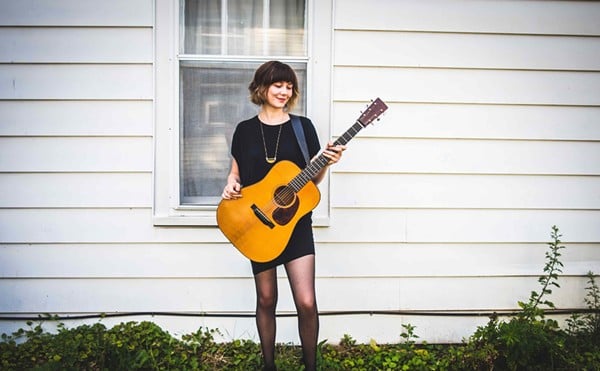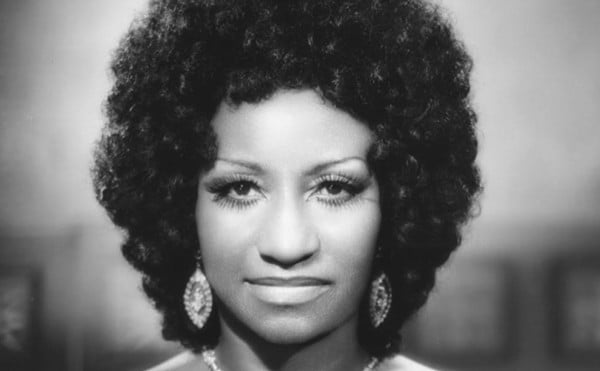September 26, 2021 had been a good day for then 41-year old Richie Faulkner, guitarist for heavy metal legends Judas Priest, (which he joined in 2011 following the departure of founding guitarist K.K. Downing). Although he had been feeling a little fatigued earlier in the day, Faulkner was in top form as the band ripped through their hour-long set as co-headliner for Sunday’s Louder Than Life lineup. But midway through their closing song “Painkiller”, Faulkner suddenly felt sharp pains shoot through his chest along with dizziness, disorientation and shortness of breath. Even so, driven by his devotion to the band and the fans, he continued to play for several more minutes, even doing a guitar solo, and finished the set before he exited the stage and sought medical help. From there, he was taken to the UofL Health/Jewish Hospital Rudd Heart & Lung Center where he was diagnosed as having an aortic aneurysm and complete aortic dissection. Basically, his aorta had split open and blood was spilling into his chest, a condition that is often fatal within minutes. Faulkner was rushed into what turned out to be a 10 ½ hour emergency open heart surgery where five parts of his chest were replaced with mechanical components.
Faulkner has since fully recovered and gone on to do several more tours with Judas Priest, and the band recently released their 19th studio album, Invincible Shield, in March of 2024. So when LEO Weekly was offered the chance to speak with Faulkner over Zoom ahead of Judas Priest’s appearance at this year’s Louder Than Life on Sunday, September 29th, we jumped at the chance!
(This interview has been edited for length and clarity)
LEO: Hey, I’m talking to you from a small town called Louisville. You’ve been here once but you probably don’t remember us.
Richie Faulkner: [Laughs] I know Louisville very well. It’s got a special place in my heart.
Do you think what happened will be in your head at all during the show, or do you think you’ll just be focused on playing?
Well, it’s going to be in my head now! [laughs]. No, I don’t actually know. It will be more or less to the day that it all went down, which is pretty scary. I remember everything from that day. I remember I was kind of tired. I remember stuff happening backstage. I remember the moment before we went on stage. I filmed the crowd before we went on. I remember playing. I remember when it happened. I remember how it felt. It was afterwards that things get a bit fuzzy. Your body’s in shutdown. It’s in survival mode, and you forget things that happened. So it was quite an experience, as you can imagine.
I would think so! It’s not every day that you almost die in front of 100,000 people.
That’s right. The good thing was it happened where it happened. The gig site was a few miles away from the hospital; which is one of the best hospitals in the country, if not the world, for that kind of stuff. So if it was going to happen anywhere, it was good that it happened there. I could actually see the festival site from the hospital window, it was that close.
I was there watching your set when it happened and no one in the crowd knew anything was wrong.
That is a testament to my shoddy playing normally, [laughs], no one noticed! Yeah, at the time you don’t know what’s going on. There’s a duty to fulfill to the fans and to the band. There’s people out there that have paid a lot of money to be there, to see the band, so you go with what you know, which is carry on. I think if I’d have known what it was, I would have acted differently. But you just don’t know. Luckily, it was the final song of the set. Usually we have an hour and 40 minutes, but Metallica were playing after us, so our set was cut to an hour. But if it would have been an hour 40, I would have carried on and I probably would have dropped dead onstage.
I’m just shocked that you were able to keep playing and finish the song. I mean, you didn’t miss a note!
Oh, I did. I’m very good at concealing them, I can tell you that! [Laughs]. But I noticed something was wrong. I didn’t know what, and when it started to affect me was at the end of the song. I usually lift the guitar up above my head with one hand, and I just couldn’t do it. And that’s when I physically knew there’s something seriously wrong. I thought I was going to faint. And I moved away from the front of the stage because I thought if I fall over, there’s quite a big drop there from the stage to the ground. So I was aware of that. And it was funny; me and the stage manager always joke with each other. He’ll say, “You okay?” and I’ll make a joke about not being okay. This time I said I’m not okay, and he didn’t believe me! [Laughs]. It’s just my luck, you know.
How much time passed between when you first felt pain and you getting emergency surgery?
That’s a good question. I have no idea. It was maybe halfway into the last song, so it was maybe a good two or three minutes until the end of the song. Then it was a few minutes when I was backstage with the medics and then went back to the dressing room to change. It was probably a good 20 minutes before we even left the site. Then we checked in at the hospital, they did some tests. It was a good while. People that usually have that happen have got minutes to live, but I had been told by the surgeons that because my adrenaline was pumping, it probably kept me going long enough to get to the next stage. So you could say that because of the fact that we were playing, it saved my life. So in a sense, heavy metal actually saved my life!
And now you can literally say you have metal in your heart.
Absolutely! I’m more machine now than man, [laughs]. It’s amazing what they can do these days, with the things they can put inside to make everything better again. And then they stitch you back up with literal wires.
You were out of the hospital in 10 days and back to touring again six months later. That’s absolutely insane.
That’s correct. I think my first thought when I woke up from surgery was “What’s happening with the tour?” That’s the mode you’re in, really. We had a few days off [after Louder Than Life], so the band were going to Denver and I was going home to Nashville for a few days, and they actually got the message that I was in open heart surgery on the plane as they were flying out, and straight away Rob said to cancel the tour. So I was determined to get home and back onto the guitar. I think I got home on a Friday and I was playing again on a Monday. Not very well, but it was a slow process. You have to start somewhere. And it’s difficult. You have to sit down and you’re cradling the guitar in such a way where your chest is kind of crumbled, so it was difficult to play, but it was part of the healing process to get back to some sort of normality, and touring was part of that. And it was maybe three months afterwards when I thought, “Okay, I’m well enough to do this.” But then we took another couple of months just to make sure that everything was in working order. Then I think it was March the following year we went back out again. But it was important to have that target to aim for. So some people were telling me it was too quick, but to me, it was essential to get back on the road.
Do you or your doctors know what may have caused this? Because there was nothing wrong with you at that point, was there?
Nothing at all. So they said it was high blood pressure, but I had no history of high blood pressure. We get regular checkups for insurance purposes for the tours, and there was no sign of high blood pressure on previous checkups. So it came out of the blue.
I read that part of your aorta split was never repaired. Has it caused any problems?
Not that I’m aware of. But the whole thing split, which is quite rare. So there’s two parts; an upper and a lower aorta. The whole thing split up around here, [points to the top of his neck], all the way down to my groin. So the upper they fixed, but the lower part is still split, and that’s what they’ve got to keep an eye on. What happens is you go in for an operation like that, I think it was about 11 hours of surgery, and if you’re under anesthesia for too long, you start to run into complications with brain damage. So they had to make a call that’s the part we’re going to fix. That’s the part that’s critical, and we’ll keep an eye on the rest. So that’s what they did. It should be fine as long as I keep my blood pressure, heart rate, and diet under control.
When you come back for Louder Than Life this year, are you going to visit the doctors at all?
Yeah, I’ve kept in contact with the main surgeon, Dr. Power, since then. So hopefully we’re going to meet up with him and the other surgeons, go out for dinner, and do some stuff with the hospital.
Do you think that you all will address what happened when you’re playing Louder Than Life this year?
I don’t think so. I mean, I wouldn’t like to make it about that. I don’t know if Rob will say something. But it’s another milestone, really. It was a milestone to get back into rehearsals and play “Painkiller” again. It was a milestone when we went back on the road. And it’ll be a milestone to go back to Kentucky and play on the same stage on almost the same day to when it changed my life.
Rob Halford (vocalist) and Glenn Tipton (guitarist) have both said that you saved Judas Priest. When you joined in 2011, they were planning their farewell tour. Is there a lot of pressure in knowing that you saved a legendary band from breaking up? I mean, you’re literally the reason why Judas Priest hit 50 years as a band.
I thought it was the farewell tour like everyone else did. Obviously, there’s pressure. You’re aware of and respectful of the legacy that went before you with K.K. Downing. You know what the legacy means, you know the duty of being up there for the fans that have put the band there, and you have got to give 1,000% back to them. Fortunately, the band is still putting out new music and touring almost 14 years later, and I’m just happy to be a part of it.
Judas Priest co-headlines Louder Than Life on Sunday, September 29th. For more information, visit judaspriest.com

